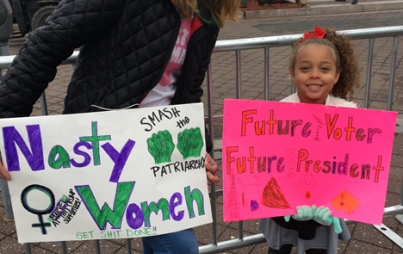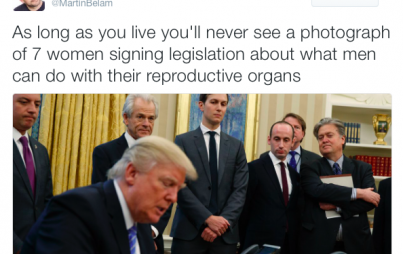
If you grew up in the United States, you might believe that communism (and its less radical sister, socialism) are both, well, evil. From the communist hunt of the McCarthy era to Vladimir Lenin's socialist revolution following the first world war, our nation's history has consistently revealed bias against these economic systems. Here in 'Murica, our party line in less formal parlance might roughly translate to: "EHMIGAWD, capitalism is the best you guys!"
Hence the earth-shaking nature of yesterday's foreign policy news. After 53 years of strained relations (just Google "Bay of Pigs," "Operation Mongoose," "arms race," "Fidel Castro" and be on your merry way), our nation and Cuba are starting to work on their tumultuous relationship. The U.S. even plans to establish an embassy in Havana. In a released statement, the White House oh-so-wisely noted: "It is clear that decades of U.S. isolation of Cuba have failed to accomplish our enduring objective of promoting the emergence of a democratic, prosperous, and stable Cuba."
This is monumental. But an issue that hasn't garnered much attention in the current upswell of coverage is that the tiny Caribbean country is massively beating America in an important social issue. Which? Women's rights.
Before you grab your scuba gear and swim to Cuba, understand that things aren't perfect: Gender equality there is pronounced on paper—but social practices are not quite up to speed. Despite that, Cuba ranked #15 (out of 135 countries) in the World Economics Forum's 2013 Gender Gap Report—coming in just after Germany. The U.S., on the other hand, came in at #25 (even behind South Africa). Yikes!
Let's break it down:
The Workplace
Since 1965, Cuba—initially under Fidel Castro—has been ruled by a single party communist state. In an effort to make citizens equal, Castro implemented legal rights to both genders. In doing so, Cuba has provided ample job opportunities for women. The majority (approximately 80%, compared to our nation's 49%) of university students are women, and these studious sisters go on to do well. First of all, female small business owners are flourishing in Cuba. The country is not wealthy—as of 2012, the average monthly salary translated to $19—so this is an empowering movement.
Further, jobs that require a lot of brain power are dominated by Cuban ladies. Women make up 2/3 of judges and lawyers. Teaching positions are also full of females—80% of the education workforce is made up of women. As for healthcare (doctors, physicians, etc.), women make up 69% of the workforce. To compare, 76% and 34.3%, respectively, of these fields are lady-laden in the U.S.
Unfortunately, the glass ceiling does exist in Cuba as well. Similar to the U.S., higher power jobs are held by men. In the Cuban National Assembly, women make up just 43.6% of the legislature. However, women make up just 17% of our House and Senate. So . . . Cuba's still looking pretty good? Almost. Though sexual harassment in the workforce is prohibited, it occurs rampantly. Usually a woman who is subordinate to a man is the victim.
Women's Health
If you're not jealous yet about Cuba's surprisingly progressive women's rights stance, you're about to be. For starters, contraception and abortions are both legal and provided under Cuba's free national healthcare system. Sex ed is also mandatory and is offered at almost all grade levels. In these classes, "no means no" and the necessity of consent for sexual activities is harped on to the students. As it is, Cuba has a low teen pregnancy rate (though, not lower than the U.S.'s) at 44 per 1,000.
After learning about proper sex and obtaining a decent job, women are allowed paid maternity leave. Paternity leave is available to new fathers, though few take it. During this leave, women may take 18 weeks and are paid 100% by social security. Not too shabby!
Gender-based Violence
Here comes the disheartening part. Though the rights look awesome on paper, domestic violence still isn't handled well in Cuba. Sadly, Cuba does not have a separate law for domestic violence (side note: This hurts everyone, not just women) as it—allegedly—doesn't perceive in-home abuse as a "distinct category of violence." Sometimes, it's perceived as a "family problem" instead. That said, special interest groups are seeking to bring more attention to this issue. But as mentioned, Cuban women deal with a whole lot of sexual harassment in the workplace as well.
Why is this? Remnants of the machismo perspective still linger. No matter what rights women are granted, socio-cultural variables can prevent progress. Rape scenes are televised in soap operas and many people don't take the issue seriously. Doesn't that sound familiar . . .
Though life is far from perfect for women in Cuba, they enjoy some rights that American women don't—namely, in the workforce and concerning reproductive justice. Gender-based violence is assuredly a huge issue—but also one the U.S. shares.
It would seem, however, that Cuba's communist approach has fared well for some degree of social progress. I'd elaborate more, but really, I'm afraid of Joseph McCarthy's ghost.






